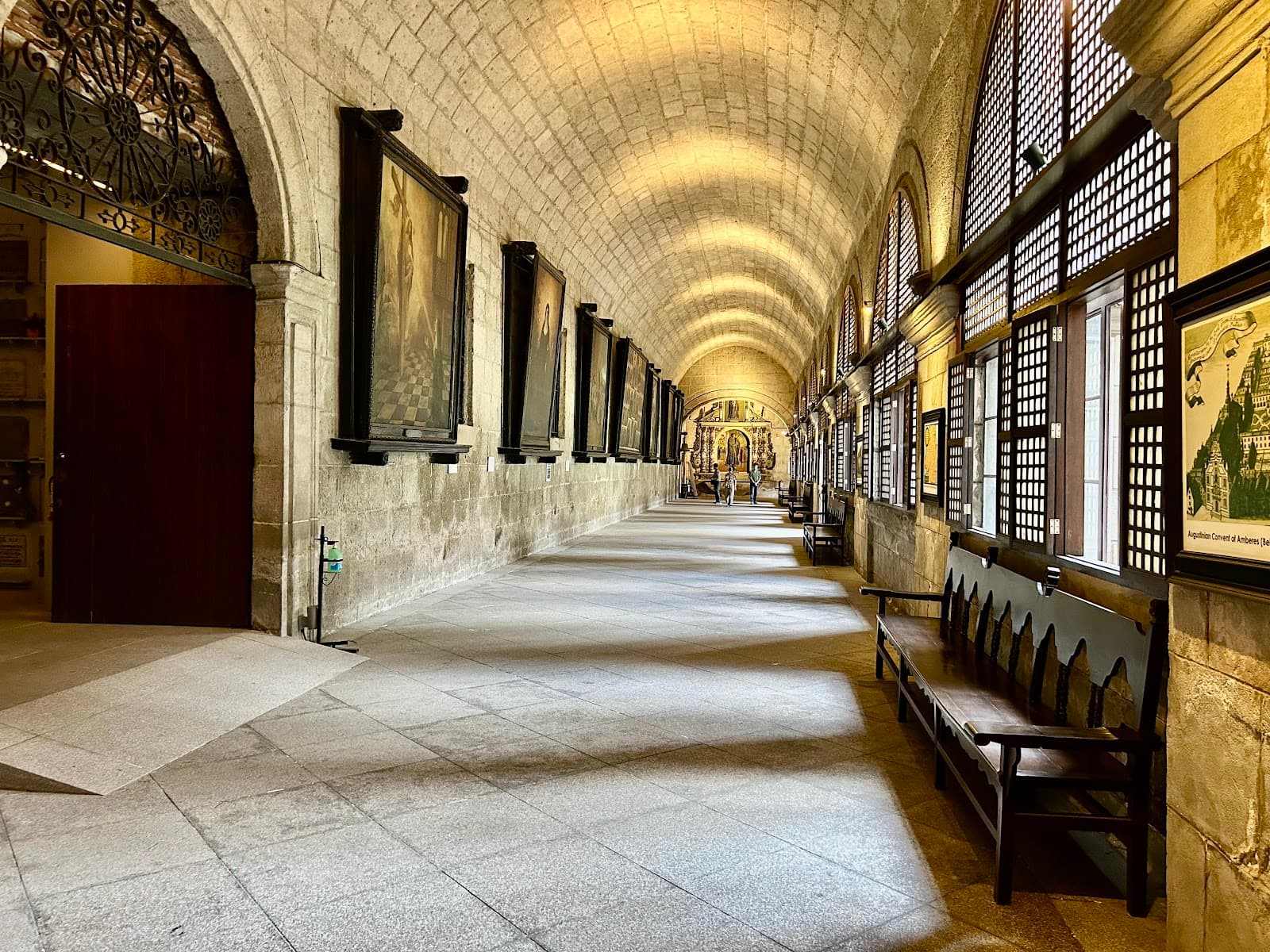
San Agustin Museum Manila
Explore centuries of history and art at San Agustin Museum, home to religious artifacts and artwork in a former monastery adjacent to a UNESCO church.

Highlights
Must-see attractions
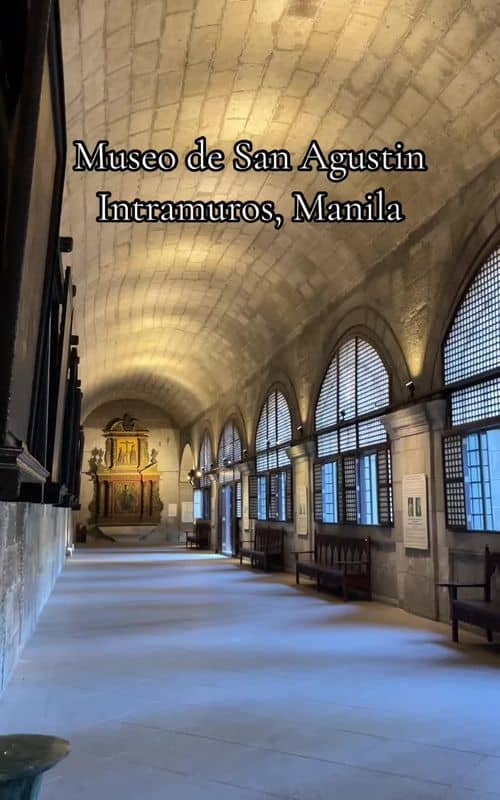
Social
From TikTok & Reddit
Best Time
Fewer crowds, cooler temperatures

San Agustin Museum Manila
Best Time
Fewer crowds, cooler temperatures

Highlights
Must-see attractions
Explore centuries of history and art at San Agustin Museum, home to religious artifacts and artwork in a former monastery adjacent to a UNESCO church.
"A must-see for history buffs, offering a deep dive into Philippine heritage and Spanish colonial art."
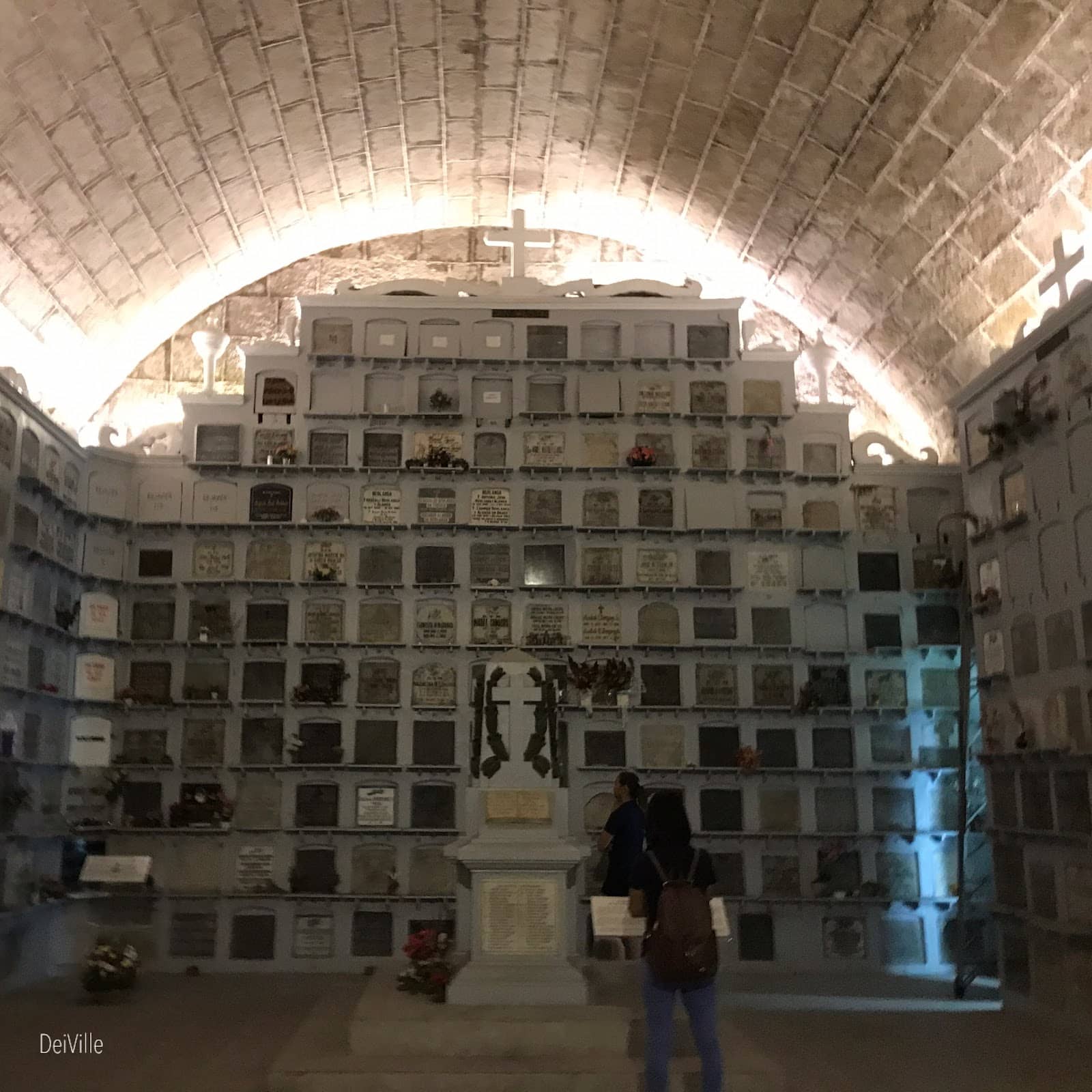
🎯 Entrance Fee Insight
Expect around 200-250 pesos for admission. Senior and PWD discounts are available.
👟 Comfortable Footwear is Key
You'll be doing a lot of walking! Prioritize comfort for exploring the vast museum and church.
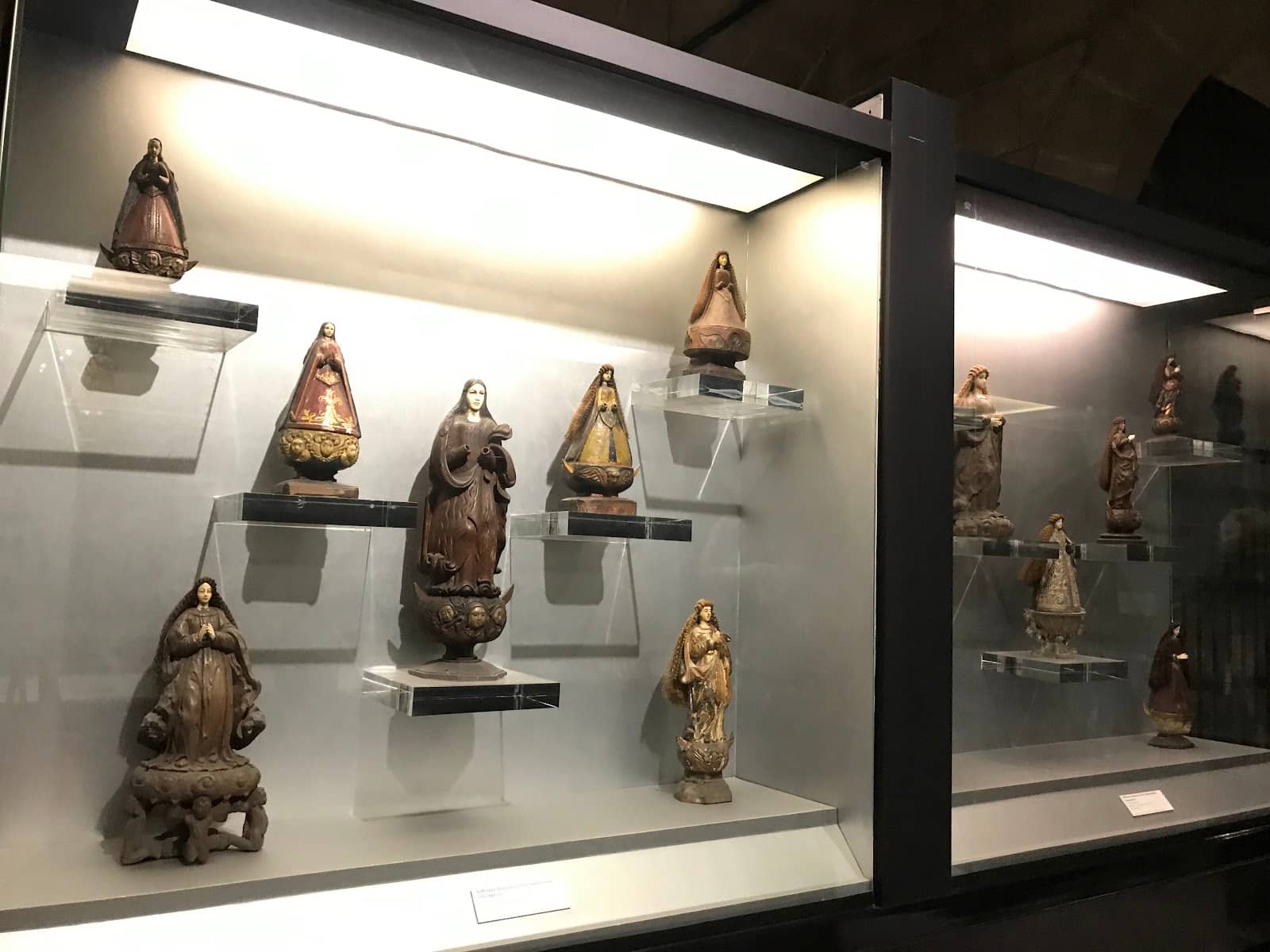
Highlights
Discover the most iconic attractions and experiences

San Agustin Church
Intramuros
The oldest stone church in the Philippines, a UNESCO World Heritage Site with stunning Baroque architecture.

Museum Collection
Former Monastery
Explore centuries of religious artifacts, artwork, and historical relics from the Spanish colonial era.
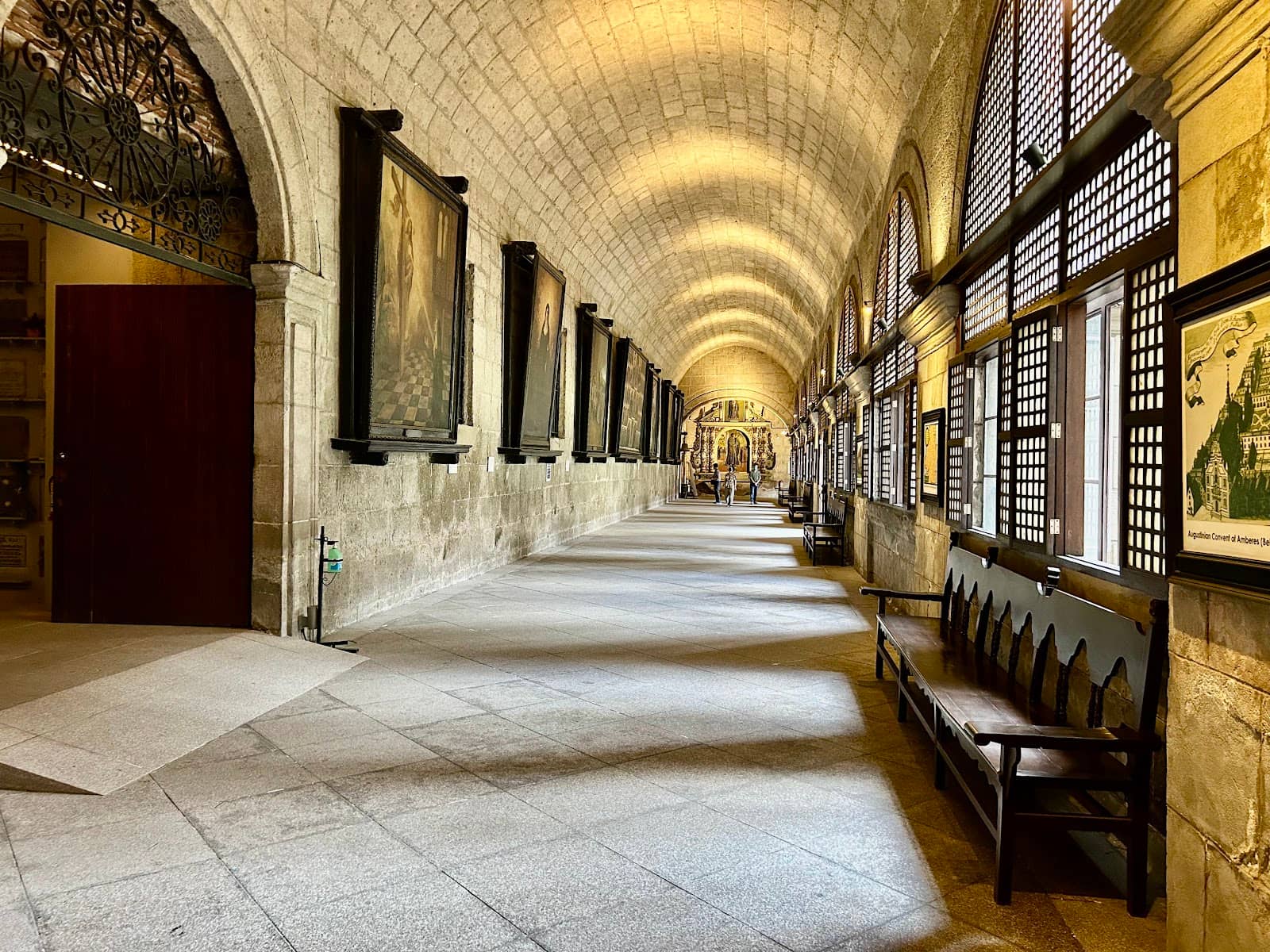
Monastery Courtyard
Central Courtyard
A serene and beautifully harmonized space with a garden and fountain, offering a peaceful escape.
Plans like a pro.
Thinks like you
Planning Your Visit
Beat the Crowds & Heat
Dress Code & Comfort
Best Times
Insider Tips
from TikTok, Instagram & Reddit
🎯 Entrance Fee Insight
Expect around 200-250 pesos for admission. Senior and PWD discounts are available.
👟 Comfortable Footwear is Key
You'll be doing a lot of walking! Prioritize comfort for exploring the vast museum and church.
📸 Photo Ops Galore
Capture the stunning architecture and historical artifacts. Some areas may have restrictions, but generally, photos are allowed.
🚶♀️ Consider a Tour Guide
Enhance your understanding of the history and artifacts by hiring a guide.
Tips
from all over the internet
🎯 Entrance Fee Insight
Expect around 200-250 pesos for admission. Senior and PWD discounts are available.
👟 Comfortable Footwear is Key
You'll be doing a lot of walking! Prioritize comfort for exploring the vast museum and church.
📸 Photo Ops Galore
Capture the stunning architecture and historical artifacts. Some areas may have restrictions, but generally, photos are allowed.
🚶♀️ Consider a Tour Guide
Enhance your understanding of the history and artifacts by hiring a guide.
💧 Stay Hydrated
Especially during warmer months, bring water to stay refreshed while exploring.
What Travellers Say
Reviews Summary
Visitors consistently praise San Agustin Museum and Church for their historical significance, stunning architecture, and well-preserved collections. The serene atmosphere and the depth of information provided make it a highly recommended stop within Intramuros. Some find the entrance fee a bit high, and a few mention a slightly eerie vibe in certain areas, but overall, the experience is overwhelmingly positive.
"The price is 200 pesos for a regular fee and it is open daily 8 -12pm and 1- 5pm. It is advised to wear decent clothes as it is also a Catholic Church. I’ve been here before when I was in HS and I must say it has improved drastically. If you are into history or how it came to the Ph Catholicism particularly the Agustian order, this is a must see. The place is very vast with 2 floors including entry to the church itself which is only for the museum guest and entry to the original spot for the choir with the original metal organ. Included in the museum are antique images, garments l, artworks and all sorts of relic from the past. One cannot help but marvel the architecture involved during the Spanish era as the building itself is a testament to that. 2 hours is sufficient enough to cover the whole place. After which, you can unwind with the nearby cafes that are also synced with the same theme with that of the church."
Jerwin Yosuico
"In the capital city of Manila, there is Intramuros, a walled city where Spanish colonists lived. Even now, you can see traces of the old walls surrounding the city. The San Agustin Church inside the city is the first Baroque church built by the Spanish in the late 16th century. It is the oldest stone cathedral in the Philippines, and its construction began in 1571.
It is a representative Baroque style building.
The cathedral is made up of two parts: the chapel and the monastery.
The cathedral is free to enter, while the monastery requires a ticket of 200 pesos for adults and 160 pesos for children.
The monastery has been converted into a museum that collects valuable items such as a golden chalice, old furniture, hymns written long ago, a silver cross, an ivory statue, an oil painting depicting the story of Jesus being captured, ascending to Golgotha, dying on the cross, and being resurrected after three days, and many religious artifacts.
It is very large and consists of about 20 large and small rooms. Each room has different relics stored in it, and the interior is relatively cool.
The monastery is surrounded by a square shape, and the interior is beautifully harmonized with a garden and fountain.
The garden seen from the second floor of the monastery is very quiet and beautiful.
It was initially built with bamboo, palm leaves, coconuts, and mud, but after being destroyed by a fire, it was rebuilt with stone in 1599.
The reliefs inside the cathedral are detailed, and there are many old religious paintings.
The stained glass reflects sunlight, creating a sense of peace and elegance inside. From the choir attic at the top of the cathedral, you can look down on the entire cathedral.
When you enter the chapel and look up at the ceiling, you can see biblical figures meticulously painted by the artist, very vivid and three-dimensional. The pillars are carved with rose-shaped ornaments, and a large chandelier hangs from the dome, adding to its beauty.
The cathedral has survived numerous earthquakes and typhoons since 1645, and survived the British invasion in 1762.
It was fortunately spared from damage during the Spanish-American War and the Japanese invasion of China in 1898. It is especially significant because it was preserved intact despite the destruction of much of the walled city of Intramuros by bombing during World War II in 1945.
Many Catholic cathedrals, known as the "Vatican of the East," were built throughout the Philippines.
In 1965, to commemorate the 400th anniversary of the introduction of Catholicism to the Philippines, the Church of St. Augustine set out to create a museum by displaying photographs of 100 churches built throughout the Philippines between the 16th and 19th centuries. Since then, it has continued to collect all kinds of precious cultural artifacts lost in past wars and exhibit them in the monastery for the public to see.
The monastery museum, built next to the Church of St. Augustine, is also a museum with a large collection of Filipino and Spanish art, and is an important venue for exhibiting Philippine history and culture.
It also has a history of over 400 years and was listed as a UNESCO World Heritage Site in 1993.
There are three other churches in the Philippines that have been designated as UNESCO World Heritage Sites.
The St. Augustine Church in Paoay, Santa Maria, and Miag-ao were each built under the leadership of Spanish and Mexican missionaries, and the addition of Philippine traditions creates a unique atmosphere.
The church has Spanish-style elegance in both its exterior and interior decorations. The church is characterized by detailed and realistic reliefs on the stones, paintings on the ceiling and walls inside the church, and statues of St. Augustine and Jesus in the center. Inside the church, the remains of former high-ranking Filipino officials are buried, and their dates of birth are written on the floor."
Danny Hyun
"A good way to soak in Filipino culture if you want to know more about the culture and way of life during the Spanish era.
I highly recommend that you get a tour guide because they will guide you during your visit. I wouldn’t recommend that you just stroll around on your own.
The place us huge and I recommend you allocate 3 hours of your time to fully go around the place
You can conveniently buy tickets upon entering. I think tickets are about 200-250 each"
Caren Aguado
What People Like
What People Dislike
Frequently Asked Questions
🚇 🗺️ Getting There
San Agustin Museum is located within Intramuros, the walled city of Manila. You can reach Intramuros by taxi, ride-sharing apps, or public transport like jeepneys or buses heading to the area. Once inside Intramuros, it's a short walk or you can opt for a kalesa (horse-drawn carriage) or bamboo bike tour to get to the museum.
Yes, you can take jeepneys or buses that go to Intramuros. From there, it's a walkable distance or you can use other intra-Intramuros transport options.
Many visitors enjoy walking, taking a kalesa, or renting bamboo bikes to explore Intramuros and reach San Agustin Museum.
Parking is available within Intramuros, though it can get busy. It's often easier to use ride-sharing services or public transport to avoid parking hassles.
Yes, ride-sharing apps like Grab are a convenient way to get to Intramuros, and from there, you can easily reach the museum.
🎫 🎫 Tickets & Entry
The entrance fee is typically around 200 pesos for regular admission, with discounted rates for senior citizens and persons with disabilities (around 160 pesos).
Yes, discounted rates are usually available for senior citizens and persons with disabilities.
While not always explicitly stated, booking through platforms like Klook might offer discounts or package deals for Intramuros attractions, potentially including San Agustin Museum.
The museum is generally open daily from 8 AM to 12 PM and 1 PM to 5 PM. It's always a good idea to check their official hours before your visit.
Yes, museum guests typically have access to the San Agustin Church itself as part of their admission.
🎫 🏛️ Onsite Experience
The museum houses a vast collection of religious artifacts, antique furniture, artworks, vestments, and relics from the Spanish colonial period, offering a deep dive into Philippine history and Catholicism.
Most visitors find that 2 to 3 hours are sufficient to explore the museum and the adjacent church thoroughly.
Photography is generally permitted inside the museum, allowing you to capture the historical artifacts and architecture. However, always be mindful of any posted signs or staff instructions.
While the historical content might be more engaging for older children and adults, the beautiful architecture and vast spaces can still be interesting for younger visitors.
Hiring a tour guide is highly recommended to fully appreciate the historical context and significance of the exhibits.
🍽️ 🍽️ Food & Dining
Yes, there are several cafes and restaurants within Intramuros that offer a themed dining experience, often in line with the historical ambiance of the area.
You can find a mix of local Filipino cuisine and international dishes. Some cafes offer unique historical-themed menus.
While some cafes can be pricier, exploring the smaller eateries or food stalls within Intramuros might offer more affordable options.
It's generally advisable not to consume food or drinks inside museums or churches to preserve the exhibits and maintain the sanctity of the place. Check for specific policies.
Los Frailes Cafe and Starbucks within Intramuros are often mentioned for their ambiance and proximity.
📸 📸 Photography
The church's facade, interior details, the monastery's courtyard with its garden, and the various exhibit rooms offer excellent photographic opportunities.
Photography is generally allowed inside the church, but it's best to be respectful and avoid flash photography that might disturb services or visitors.
A versatile lens (like a 24-70mm) is great for capturing both wide architectural shots and details. A prime lens can be useful in lower light conditions inside.
Drone usage is typically prohibited in historical sites and religious areas like Intramuros to ensure safety and preserve the heritage. Always check local regulations.
Early mornings or late afternoons offer softer light, ideal for photography. The golden hour can create beautiful shots of the exterior and interior.
For Different Travelers
Tailored advice for your travel style
👨👩👧 Families with Kids
To make the visit more interactive, consider hiring a guide who can simplify the historical narratives for children. Pack snacks and water, and ensure everyone wears comfortable shoes for exploring the extensive grounds. The museum's serene courtyard can also be a nice spot for a brief rest.
🏛️ History Buffs & Culture Enthusiasts
Allocate ample time to absorb the details of the museum's extensive collection of artifacts, artworks, and religious relics. Consider engaging a local tour guide to gain deeper insights and historical context that might be missed on a self-guided tour. The surrounding Intramuros area offers further historical exploration, making it a perfect destination for a day dedicated to Philippine heritage.
📸 Photographers & Art Lovers
Inside the museum, the religious artifacts, antique furniture, and colonial-era artworks offer unique photographic opportunities. The interplay of light and shadow within the old stone walls creates a dramatic atmosphere. Remember to be respectful of the sacred nature of the site and any photography restrictions.
Deep Dives
In-depth insights and expert knowledge
A Glimpse into History: The San Agustin Church
Inside, visitors can marvel at the stained glass windows that cast a peaceful glow, and from the choir attic, one can overlook the entire nave. The church also serves as a resting place for former high-ranking Filipino officials, with their birth dates inscribed on the floor. This sacred space offers a profound connection to the Philippines' colonial past and its deep-rooted Catholic heritage.
The church's preservation during World War II, when much of Intramuros was destroyed, is particularly noteworthy. It was spared from significant damage, allowing its historical integrity to remain intact for future generations to experience.
Treasures of the Past: The San Agustin Museum
The collection includes exquisite golden chalices, antique furniture, ancient hymns, ivory statues, and oil paintings depicting significant religious events. The architecture of the monastery itself, with its central courtyard, garden, and fountain, is a significant attraction, offering a tranquil ambiance. The museum provides a comprehensive look at Filipino and Spanish art and culture during the colonial era, making it an essential stop for history enthusiasts.
Many visitors find the museum's collection surprisingly engaging and recommend allocating ample time to explore its diverse exhibits. The cool interior and the quiet beauty of the courtyard offer a welcome respite from the bustling city outside.
Exploring Intramuros: Beyond the Museum
Visitors can also explore other significant churches like the Manila Cathedral, or immerse themselves in the colonial lifestyle at Casa Manila. For a unique perspective, consider a bamboo bike tour or a kalesa ride to navigate the cobblestone streets and discover hidden corners of this ancient city.
Intramuros also boasts charming cafes and restaurants, such as Los Frailes Cafe and Starbucks (known for its hidden painting), providing opportunities to relax and refuel while soaking in the historical atmosphere.
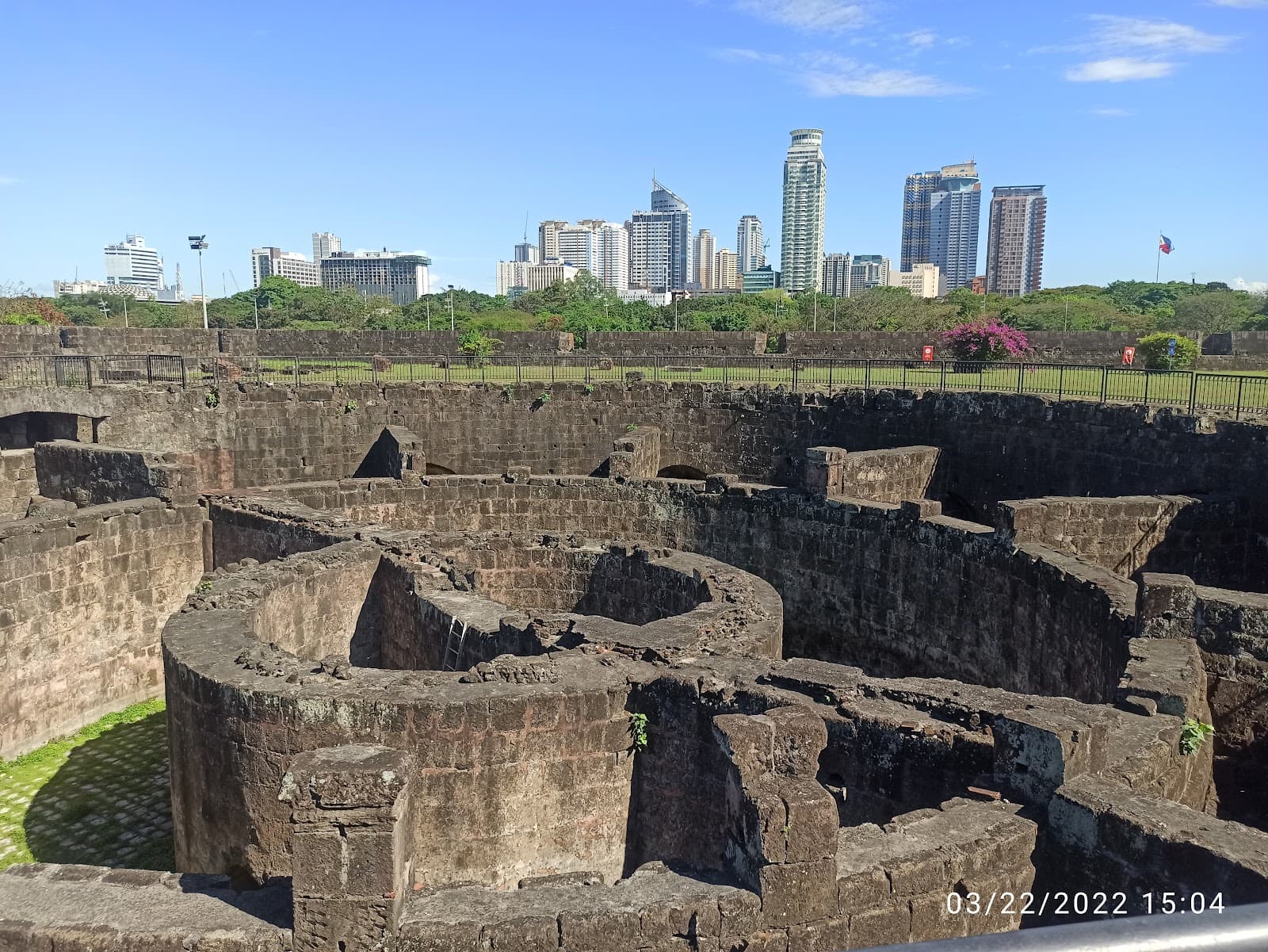
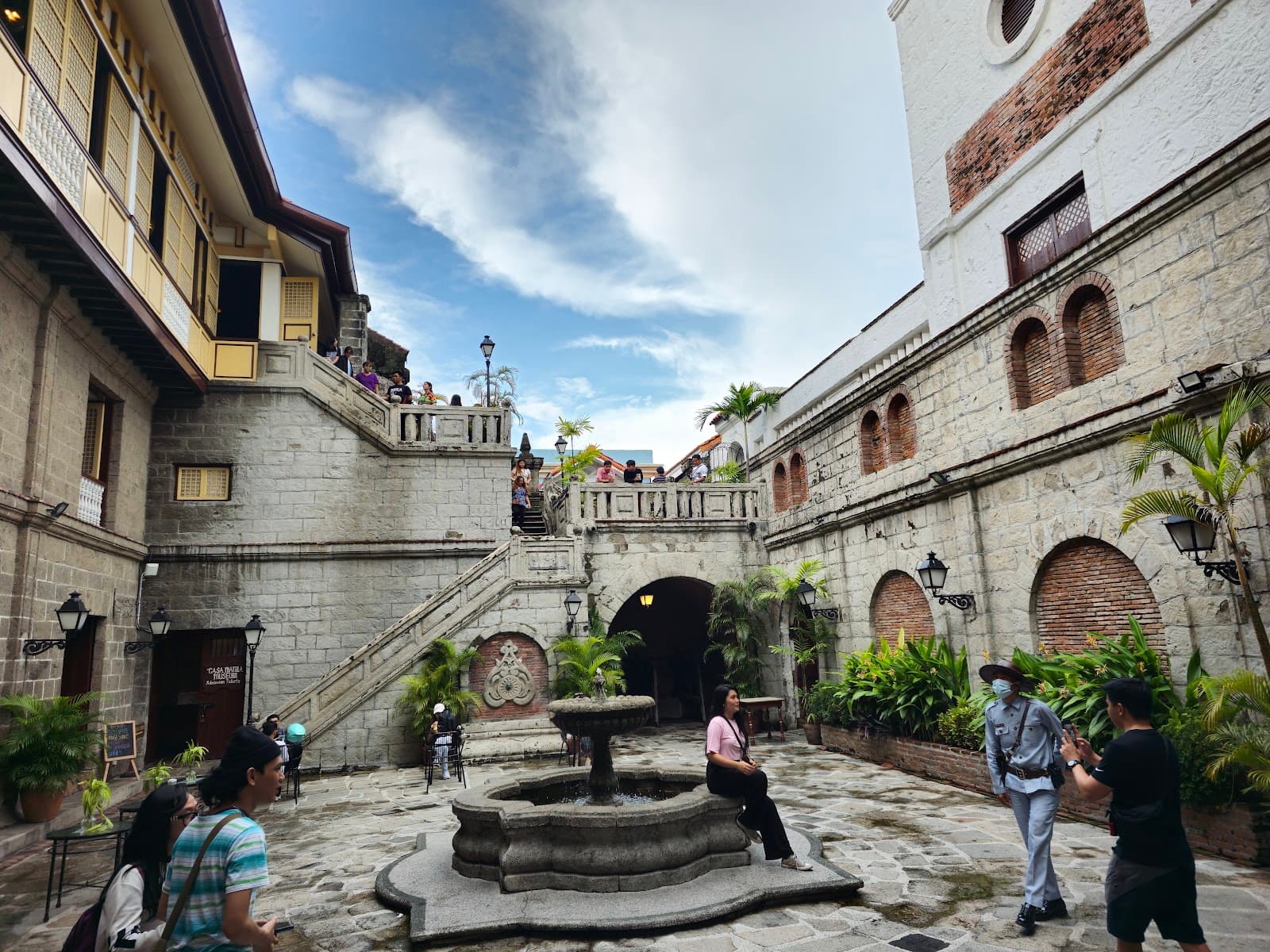
Social
from TikTok, Instagram & Reddit